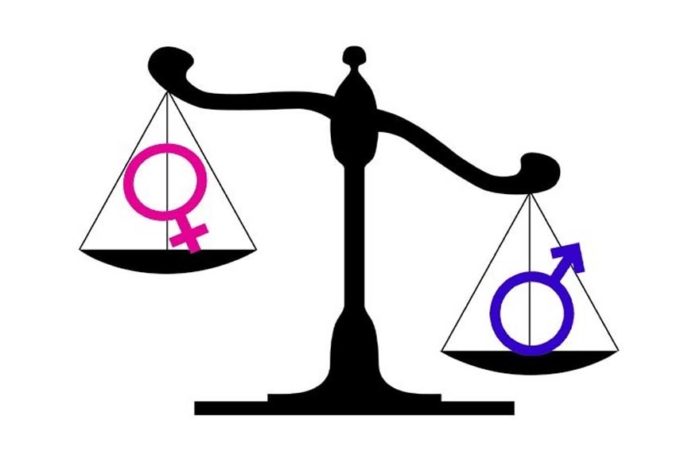Disclaimer: The Eqbal Ahmad Centre for Public Education (EACPE) encourages critical and independent thinking and believes in a free expression of one’s opinion. However, the views expressed in contributed articles are solely those of their respective authors and do not necessarily reflect the position or policy of the EACPE.
Since the emergence of private property, the ruling class availed all the perks and privileges of the time from keeping the horses of best race to women in their harem, which used to be the private sex palaces for men. Throughout the history of patriarchal societies, women have been considered as property of men like the land and gold, and we know that properties are supposed to be protected. The feudal ruling class while monopolizing all other things also monopolized the sex keeping hundreds of women in their harem. These women had neither the right to establish relationship with other men nor had the right even to see the outside world. Women were declared as the honor of the feudal lord who used to act like a godly figure supposed to be worshipped by them on the principles made by men.
This structure of the society was common here and is still prevailed in different forms and shapes in backward and feudal dominated regions. In subcontinent being ruled by the Muslims for centuries the structure of society was no different. During the colonial period, however, women from urban areas started gaining education which paved the way for change, but it was not acceptable for the feudal being a threat to their dominancy. They preferred women to remain confined within the four walls.
In this context, it will be interesting to read “Bahishti Zewar” (Heavenly Ornaments), a famous book by Maulana Ashraf Ali Thanvi (1863-1943), a renowned religious scholar and spiritual leader from Deoband school of thought.
According to Maulana, women are half to men in wisdom, and hence, they have more chances of deviation from the right path.
Originally published decades ago, this book still holds a reputable status in many parts of the subcontinent, and has been given as a gift to brides. According to Maulana, women are half to men in wisdom, and hence, they have more chances of deviation from the right path. Hence, women should be educated so that they can differentiate between right and wrong, and avoid kufr and shirk. However, he opposes the idea of girls’ education at schools considering that gathering of girls from multicultural and diverse backgrounds can affect them negatively, and hence, he insists that women should be given secluded education at their homes from a Muslim female teacher. Also, he considers the skill of writing unnecessary for women and if a woman insists on writing, then only basics should be taught to her to enable her in accounting and recording of household consumption.
Moreover, Maulana also prohibits women from reading novels, short stories, poetry and fiction and ordered their protectors (father, husband, brothers and sons) to burn such types of books if seen in their hands. He believes reading such ‘dirty’ books may lead them to dirty thoughts and immoral behaviors. When it comes to religious books, Maulana suggests the women to consult any well-known religious scholar before reading any of them. Following are some of the books he himself suggested for women to read:
Bahisht Nama, Dozakh Nama, Islah-ur-Rusoom, Tuhfat-uz-Zojain, Faroogh-ul-Aiman, Hidayat-un-Nisa and Dulhan Nama etc.
In addition, he prohibits women to read newspapers and even Sura-e-Yusuf with translation because the story of Hazrat Yusuf and Zulaikha can trigger feelings of love in them. A woman, he insists, should be obedient to each and every order of her husband even if he asks her to carry a heavy stone from one mountain to another and then to another. Maulana further says that a woman should prepare herself only for husband and should use perfume within the premises of home, and if she refused to do so the husband has the right to beat her. She cannot visit to her relatives, except in emergency situation with the special permission of husband.
Bahishti Zewar does not favour granting women the right to make even the most personal decisions of her life, like marriage and divorce.
A woman should act upon the orders of husband in all cases. For instance, if he considered day as night, she should accept it as night. She should not demand extra things from him and should accept whatever her husband brought on his own choice. If husband got angry, she should apologize to him, otherwise God’s wrath will be on her the all night long. If husband develops illicit relations with any other woman, she should talk with him in isolation and if he still does not left his habit, she should practice patience instead of bringing it before the whole family as it will be disgraceful for husband. As God has created man like a lion, he cannot be persuaded through force, but with crouch and obedience. Also, she should not ask about the salary of husband and its uses as it will create resentment in his heart which can lead to divorce.
Regarding dress code for women, Maulana says that it should cover her whole body and figure should not be visible as otherwise it will attract other men, which is a form of fornication. Also, she should not participate in marriage and death ceremonies because it will add up financial burden on the husband for purchasing new clothes and shoes. Maulana shows his sadness that women keep wandering outside of their homes and do not act upon the principles of Islam.
Despite the huge popularity of Bahishti Zewar, sadly the aim of the book seems to present an ‘ideal’ and ‘exemplary’ woman according to the needs and patterns of a feudal setup. Women are considered as property which must be protected. Maulana does not favour granting women the right to make even the most personal decisions of her life, like marriage and divorce. For him, women are naqis-ul aql wal-iman (deficient in reason and religion), and therefore, someone else needs to make these decisions for them — men!
Unfortunately, this mindset is still prevalent which indicates the regression of our society.
 The writer is an M Phil student and researcher at National institute of Pakistan studies, Quaid-i-zam University, Islamabad. He can be reached at ziaullahkhan908@gmail.com
The writer is an M Phil student and researcher at National institute of Pakistan studies, Quaid-i-zam University, Islamabad. He can be reached at ziaullahkhan908@gmail.com



 The writer is an M Phil student and researcher at National institute of Pakistan studies, Quaid-i-zam University, Islamabad. He can be reached at ziaullahkhan908@gmail.com
The writer is an M Phil student and researcher at National institute of Pakistan studies, Quaid-i-zam University, Islamabad. He can be reached at ziaullahkhan908@gmail.com



